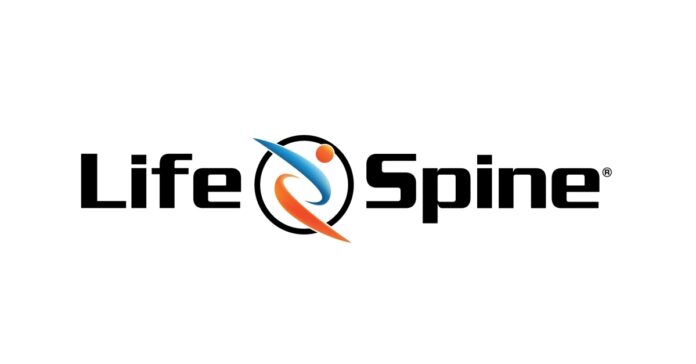HUNTLEY, Ill.– Life Spine, Inc., a leading medical device company specializing in the design, development, manufacturing, and marketing of products for the surgical treatment of spinal disorders, today announced the ongoing adoption of its ProLift Micro Endoscopic Expandable Spacer System. This system utilizes the same Micro Invasive™ tube for access, disc preparation, and interbody delivery, further advancing the company’s approach to Micro Invasive fusions.
Building on the success of Life Spine’s expandable portfolio, with over 72,000 implants sold, the company has built upon the technology to allow for the insertion of a small, expandable implant through a Micro Invasive tube. This innovative approach allows all steps of the procedure, including disc preparation, visualization, and interbody placement, to be performed through the same access point.
The ProLift Micro is engineered specifically for integration with the Micro Invasive access tube, allowing surgeons to access the affected disc space efficiently. Surgeons can perform comprehensive disc preparation using advanced, expandable instruments that extend beyond the tube’s peripheral diameter to remove and capture disc material. The system also enables seamless placement of the expandable interbody for endoscopic fusion — all without removal of the access tube.
A comprehensive cadaveric study comparing the MIS Tubular TLIF approach with the Endoscopic TLIF approach demonstrated that discectomy performance was equivalent between the two techniques, validating the effectiveness of the ProLift Micro system1.
“The ProLift Micro system allows for safe and efficient creation of a fusion environment while also allowing for indirect decompression of neural elements via a minimally invasive approach. The instrumentation and approach are easy to use, and we have been able to show through cadaveric experimentation that you can achieve a discectomy for fusion comparable to a traditional minimally invasive TLIF technique. Early clinical results from my practice have been great and I continue to incorporate it into all my TLIF cases,” said Dr. Sohrab Virk of New Hyde Park, NY.
“ProLift Micro is an effective (truly) minimally invasive option for lumbar interbody fusion, foraminal distraction, and restoration of disc height,” said Dr. Derrick Dupre of Trinity, FL. “It can be inserted fully endoscopic, without the need for tubular retractors which have been the traditional mainstay of minimally invasive surgery prior to the proliferation of truly endoscopic spine surgery. With the proper training and understanding of anatomy and neurophysiology, this is an indispensable tool in the neurosurgeons’ armamentarium and can be blended with multiple different types of approaches as well.”


